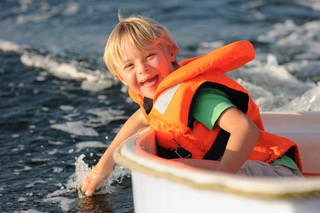Wisconsin: Don’t Forget Your PFD’s
 |
Be ready for the unexpected – Always wear your life jacket when out on the water. / Photo Credit: Wisconsin DNR
MADISON, Wis. – The Department of Natural Resources reminds everyone to be safe on the water any time you leave the dock.
What starts as a perfect day for boating can quickly become hazardous if you end up in the water unintentionally. Voluntary, consistent life jacket use is the best decision you can make for your safety while enjoying a day out on the water.
According to the U.S. Coast Guard, drowning is the top cause of death in most recreational boating fatalities, and the majority of those who drowned were not wearing life jackets. In 2019, 79% of fatal boating accident victims drowned. Most people who drown in boating accidents know how to swim but become incapacitated in the water.
Known for its many lakes and waterways, Wisconsin is where boaters and paddlers can get close to nature and have fun. When heading out for a day on the water, make sure safety is part of the plan.
Being safe no longer means donning a cumbersome preserver. You can find lightweight and stylish options at your local marine supply retailer or even online. New varieties include belt packs and other low-profile jackets that are easy to move in, and come in many sizes, styles and shapes for every person and every sport. There are even ones for pets.
Boaters should take a boating safety education course before getting on the water. Learn more about the life jacket best for your sport – boating, paddleboards, canoes and kayaks – here.
Be ready for the unexpected – Always wear your life jacket.
Important Reminders
- All vessels (including canoes, kayaks, and paddleboards) must have at least one USCG-approved wearable life jacket for each person on board.
- All vessels 16 feet or more in length must have one USCG-approved throwable personal flotation device on board that is immediately accessible.
- Every person on board a personal watercraft must wear a USCG-approved life jacket.
- Sailboarders and windsurfers are exempt from the life jacket requirement but are highly encouraged to wear one.
- Federal law requires children under the age of 13 to wear a USCG-approved life jacket while underway in an open vessel on federally controlled waters.
All Life Jackets Must Be:
- In good and serviceable condition, which means no tears, rips, broken straps or snaps;
- Readily accessible, which means you can put the life jacket on quickly in an emergency; and
- Of the proper size for the intended wearer. Sizing for life jackets is based on body weight and chest size.
You may also like
-
Evers Administration And Ducks Unlimited Announce New Wetland Project In Brillion State Wildlife Area
-
Good Information on Facebook about a snake bite
-
Help Amplify ATV/UTV Safety Messaging Ahead Of Holiday Weekend
-
Conservationists HOF inductees revealed, reward launched in vandalism case: Latest Manitowoc outdoors news
-
Beyond Polarization
